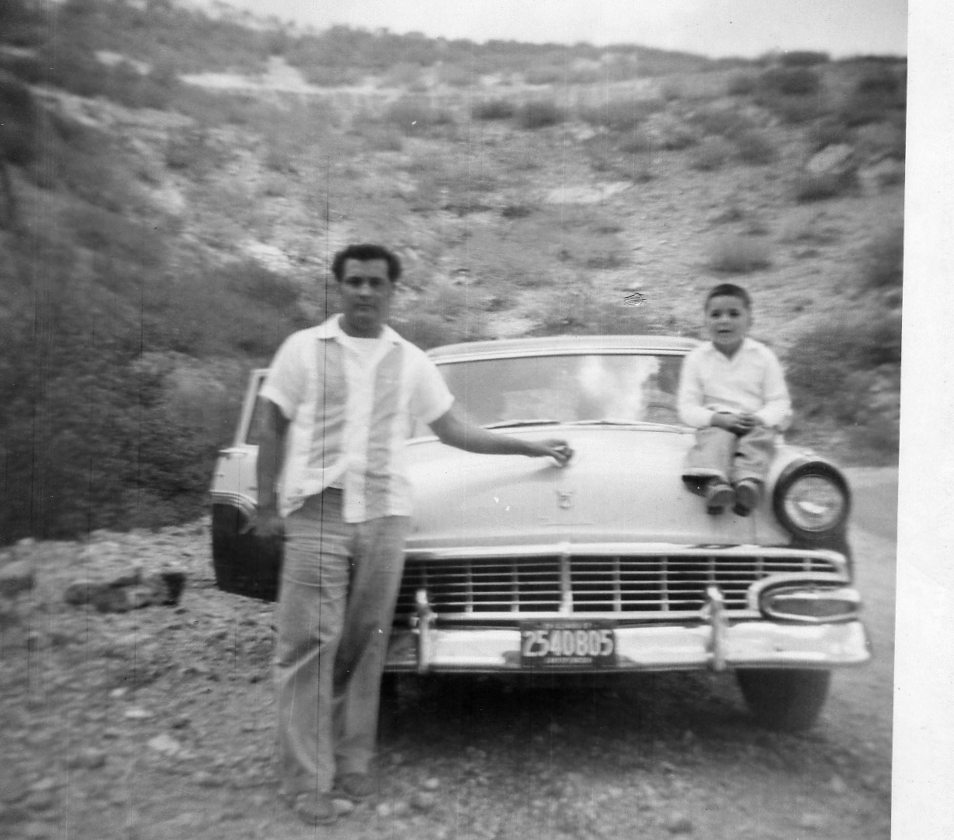TRANSCRIPTION
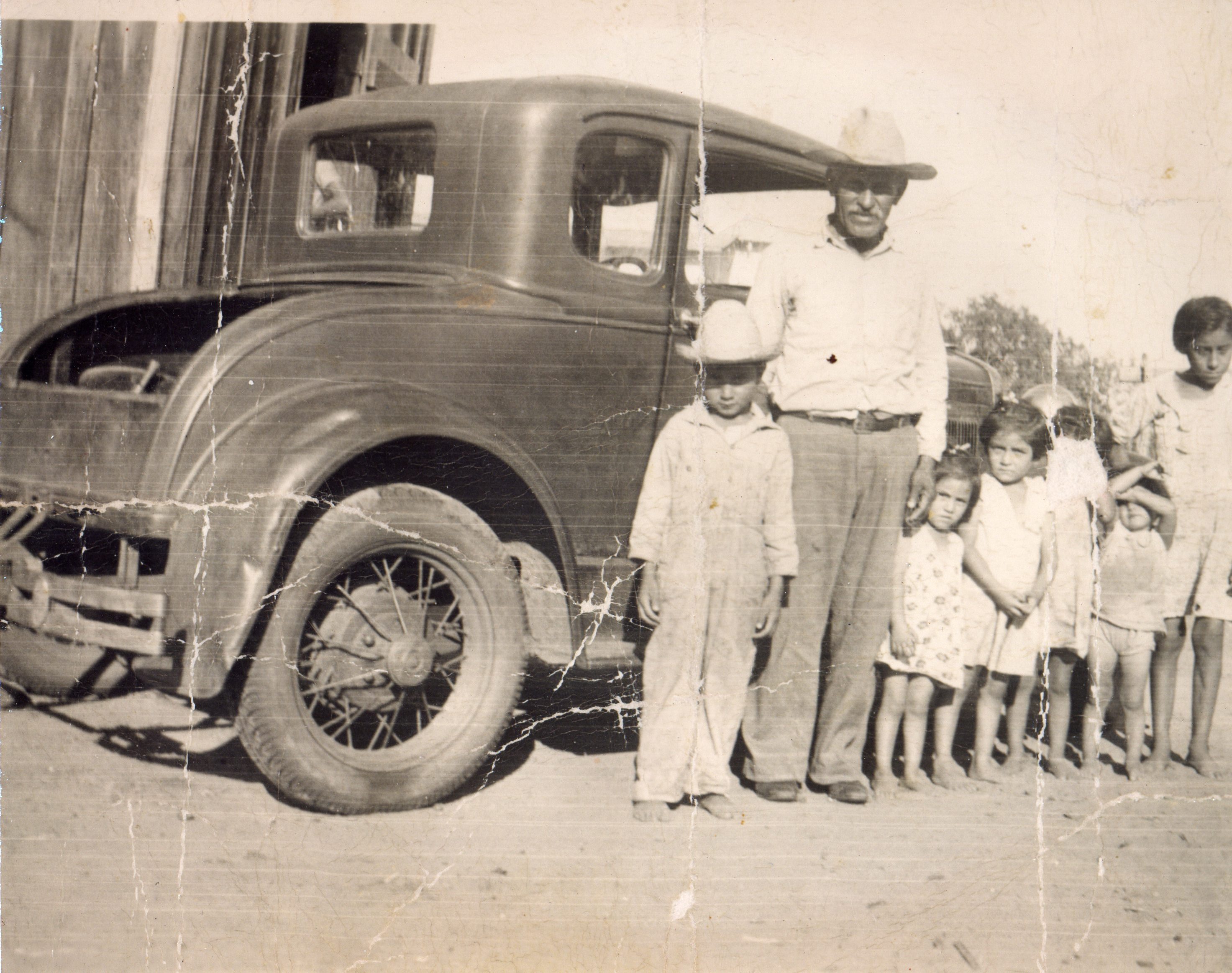
When did you start working here in Texas?
Well I started getting paid when was around 13 or 14. It was long ago I dont remember but I had to cause my dad broke his arm and couldn't work too much, so I had to help. We used to get loaded up in back of trucks and go to West Texas and pick cotton. It was hard being away from my family but it was like the whole town was there on the feilds working.There were people from all over the valley over there.
What was school like before you had to work?
School was really small but I was missing alot trying to help my dad and my sisters. After my mom died things got a little harder and when my dad got hurt I had to quit school and start working where they would pay.
You starting working at a pretty young age. How far did you get in school?
Yeah, I had to quit when I was in the 7th or 8th grade. My dad was hurt and my mom died when I was nine because of a miscarriage. I had four sisters and they were trying to do what they could to help but there wasnt much jobs and my dad my dad could work too much, so me and a couple of my sisters and dad . Oh... you know when I went toTraverse City, Michagan pick cherries too. I think I was there in 1950's. I really dont remember but it was a long time ago.
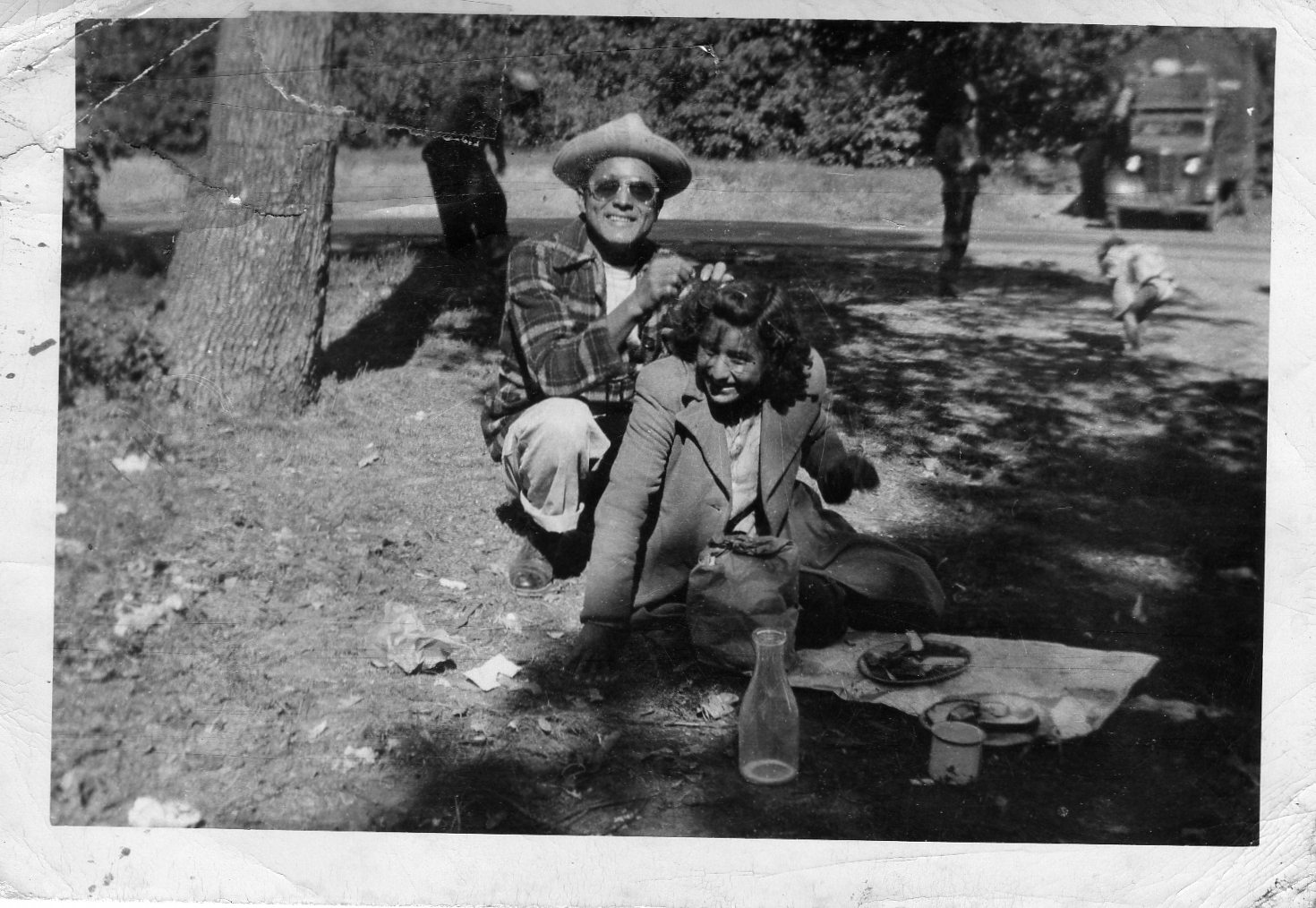
How much did make picking cotton?
(Laughs) I used to get real happy when there was a farmer that paid me 1 dollar an hour, but most the time I made 5 or 6 dollars a day working about 8 hrs
Where is West Texas did ya'll work?
We were around Lamesa, Lubbock, and O'donnel. They were small towns when we used to go there nothing but cotton and heat. Thats were your my sister and you Juan met (my grandparents). We went cotton picking one year and Juan and a place over there and she decided she wanted to stay so Juan and Carolina talked to my dad about it and stayed there all her life.
Was there a big difference between the two places?
It was pretty much the same but sometimes when we went to town over there were places where we didn't go. There were resturants that said "No Mexicans". I have a picture of that sign somewhere here or one of the kids have it. If it didnt say that then we were only allowed to pick up the food or eat it in the back. they didnt want us there but they wanted my money. I remember that one summer there was a soldier that went to a resturant in O'Donnell and I guess we was a little crazy from the war but he ended up killing the owner cause he made him sit in the back. After that some owners would slowly let some of us eat inside if they knew us or if they knew we were working with one of there friends.
Since you were away from home where did you sleep?
The farmers had small little house that we slept in. We slept were we could find room on the floor. We would just get a blanket or something so we didnt have to lay on the wood. Some of the house even had electricity but there were no restrooms in those things.
What other types of jobs did you have?
Let me think... I worked for an electric company REA making the holes for the telephone poles. I worked there for about a year I think. Then worked on the Santa Fe Railroad from San Antonio to Larado. Oh... I used to sale watermellons too. it sounds like an easy job but they get heavy.
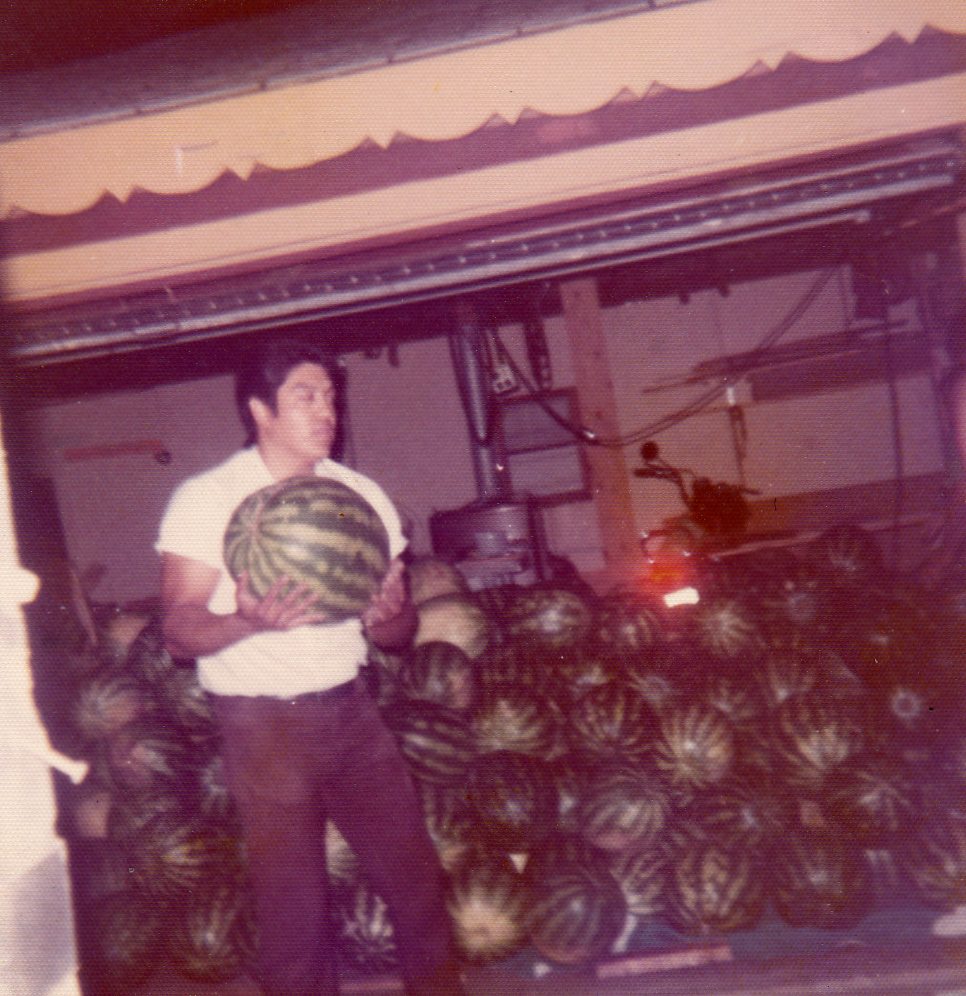
How did you meet Tia Lupe?
Well we used to go to Cotulla and visit friends and one day they were some kinda festival and I saw the princess from Cotulla and that is when first saw her. After that we started to talk and whenever I went there were would spend time together but her parents kept an eye on me cause I dont think they liked me too much but she did.
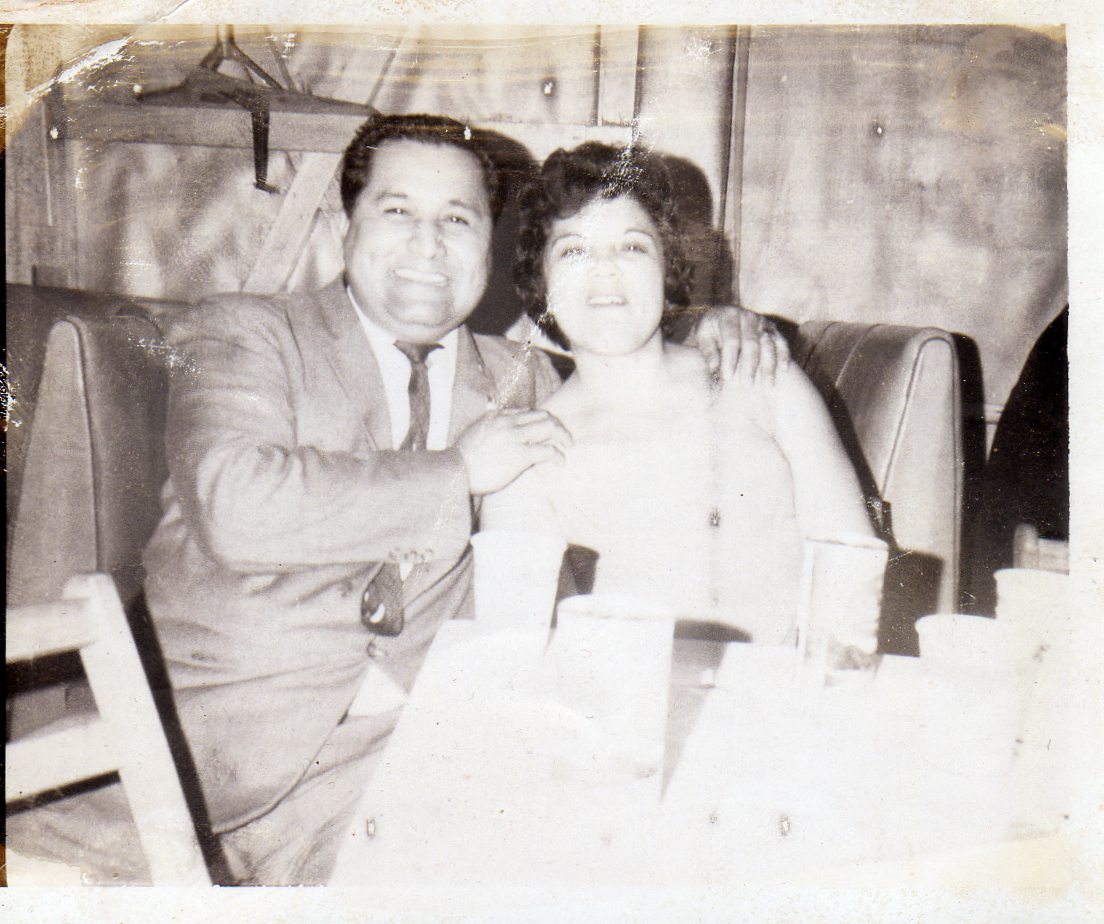 Why did you decide to move to Chicago?
Why did you decide to move to Chicago?
Better money. Down here everything was part time and I had some family up there that had good jobs and there the farmers were starting to get machines (cotton strippers) that would pick the cotton so I knew I had to do something different. One time I was up there one of my cousins drinking some beer and we gave me an application for Percision Excursions and I guess they liked what I wrote so they hired me to make and repair dice to make molding. I didnt stay too long doing that cause they made me a supervicer of the plant. When I started that job I was still selling watermelons from Texas out of my garage. Just in case I got fired and needed money to come back here, but I worked there for 24 years and then after that I went to Nickel Chemicals, it makes chemicals for automobils like radiator cleaner and oils.
After you moved over did you think you were going to stay there long?
Not at first but I did have a wife and 2 kids already and my wifes family didnt like me too much either I just wanted to have a steady job to support my family and to show my wifes parents that I could do it. They didnt like me too much because they were planning on her to marry some other guy from Cotulla Texas. I guess I won the princess.
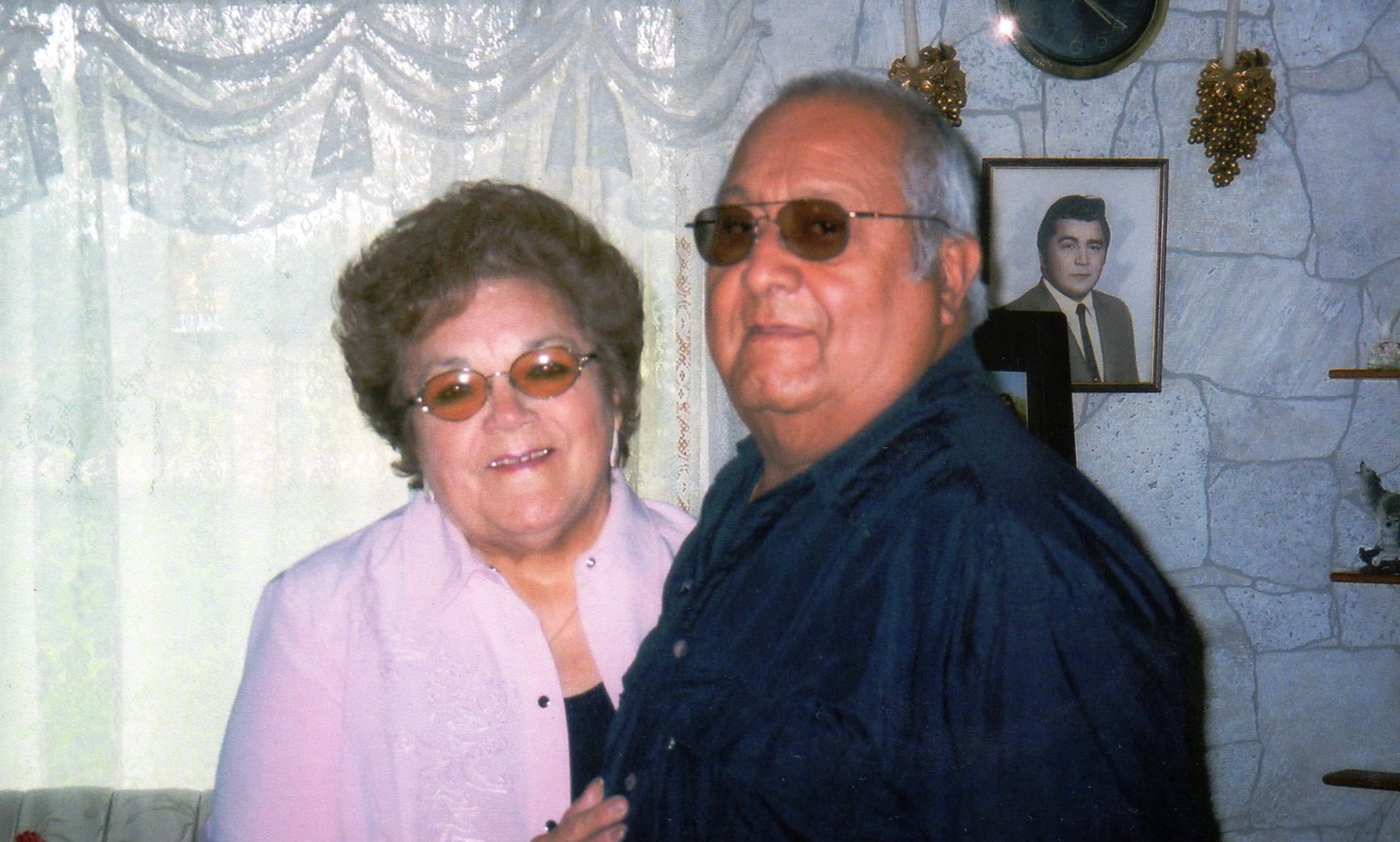
Is there anything else you would like to add to this interview?
No, I dont think so. I think thats about it. Im getting a little hungry so I gonna start cooking.
